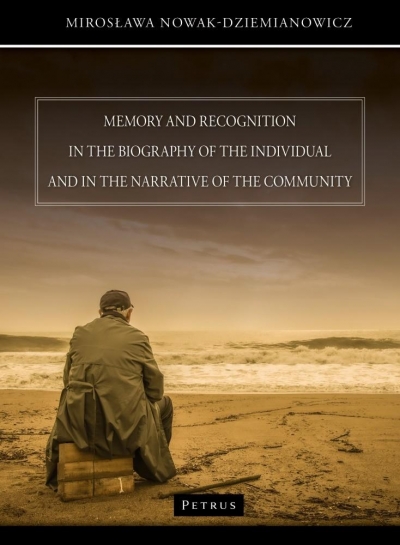Memory and recognition in the biograpfy of the..
Petrus

Wysyłka:
1 - 3 dni robocze
Sugerowana cena
Nasza cena
27,72 PLN
Oszczędzasz 31%
Najniższa cena w ciągu ostatnich 30 dni: 27,23 zł
Introduction
1. Memory and recognition in biographical and narrative research orientation
2. The recognition deficit as an enduring identity experience. Road narrative.
3. Memory and oblivion in working on one's own identity. Ida's narrative
4. Memory and time versus ontological (in)security of contemporary man
Ending. The pedagogy of recognition as a practice that integrates the narrative of our community.
The content of the presented book is a fight for memory and recognition. It is therefore a book about these human activities, those social practices that are today often treated as fundamental to the existence of society, as essential for its development and change. The fight for recognition is therefore today the way in which our freedom, our individual and community autonomy is revealed. It is our chance for emancipation. It is for these reasons that it has become the subject of this book. It has been described and interpreted on the basis of the narratives I have listened to and recalled in the book. These are two kinds of narratives. Due to the relationship that exists between the category of recognition and the concept of identity, I have made the notions proposed by Alasdair MacIntyre: individual narrative and community narrative, an important context for my research. Based on these categories, I try to show how important and why so important for us today is identity, working on it, and the effort to constantly biographically construct it. I also try to describe the place of narration among identity consolidation practices, i.e. those activities which, in the changing contemporary reality, provide (or try to provide) the individual with a subjective sense of continuity and duration.
1. Memory and recognition in biographical and narrative research orientation
2. The recognition deficit as an enduring identity experience. Road narrative.
3. Memory and oblivion in working on one's own identity. Ida's narrative
4. Memory and time versus ontological (in)security of contemporary man
Ending. The pedagogy of recognition as a practice that integrates the narrative of our community.
The content of the presented book is a fight for memory and recognition. It is therefore a book about these human activities, those social practices that are today often treated as fundamental to the existence of society, as essential for its development and change. The fight for recognition is therefore today the way in which our freedom, our individual and community autonomy is revealed. It is our chance for emancipation. It is for these reasons that it has become the subject of this book. It has been described and interpreted on the basis of the narratives I have listened to and recalled in the book. These are two kinds of narratives. Due to the relationship that exists between the category of recognition and the concept of identity, I have made the notions proposed by Alasdair MacIntyre: individual narrative and community narrative, an important context for my research. Based on these categories, I try to show how important and why so important for us today is identity, working on it, and the effort to constantly biographically construct it. I also try to describe the place of narration among identity consolidation practices, i.e. those activities which, in the changing contemporary reality, provide (or try to provide) the individual with a subjective sense of continuity and duration.
Producent:
Wydawnictwo PETRUS Paweł Piotrowski
ul. Raciborska 13/31
30-384 Kraków (Polska)
tel: 601428726
email: wydawnictwo@wydawnictwopetrus.pl
Szczegóły
Autor: Mirosława Nowak-Dziemianowicz
Wydawnictwo: Petrus
ISBN: 9788377206584
Rok wydania: 2021
Ilość stron: 286

